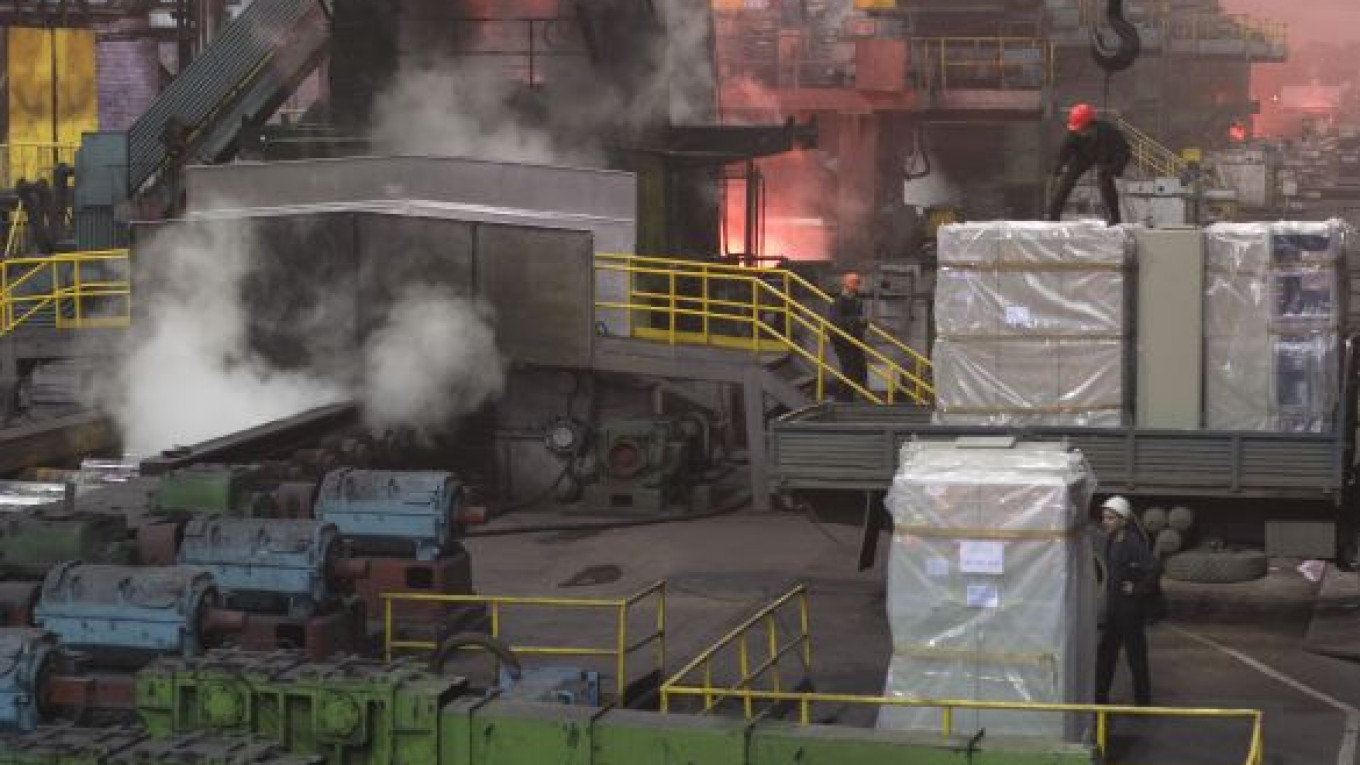Steel giant Severstal posted a net profit of $2.04 billion in 2011, having swung from a loss of $575 million a year earlier, after it sold loss-making plants in the United States and demand for steel in its key markets remained strong, according to a financial statement released Thursday.
Revenue surged 23.3 percent to $15.8 billion, while earnings before interest, taxation, depreciation and amortization reached $3.6 billion, up 25.1 percent from 2010.
The company saw demand in Russia and the United States increase 13.8 percent and 11.5 percent, respectively last year, the statement said.
Severstal's chief executive and majority owner Alexei Mordashov said the company expects healthy demand primarily from emerging markets this year, with Russia remaining the major contributor.
Stable growth of Russia's gross domestic product, as well as "activities" in the oil and gas sector, automotive and construction industries are likely to boost steel consumption, he told reporters during a conference call.
"We believe that demand for steel will remain robust enough to maintain a strong price environment," Mordashov said.
Severstal said it expects "steel prices to remain firm until the summer period, when some price correction may occur due to production ramp-up and real demand deceleration."
Following that, "we anticipate price upturn to return after the summer due to demand revival," it said in the statement.
Spot prices for steel on London Metal Exchange tumbled to about $470 per ton in February after peaking at $700 per ton in August. The metal is currently traded at about $500 per ton.
Severstal said the decline in steel prices at the end of last year had slashed its fourth-quarter revenues by almost 18 percent to $3.7 billion from the previous three months of 2011.
Net profit increased 7.9 percent in October to December to reach $463 million, which was above the consensus of $390 million by eight analysts surveyed by Bloomberg.
Severstal's EBITDA margin — a key financial ratio showing a company's profitability — stood at about 21 percent in the fourth quarter, with the steelmaker "confirming its profitability leadership in the Russian steel sector," UralSib analyst Dmitry Smolin said in a note Thursday.
Severstal's competitors, Magnitogorsk Iron & Steel and Novolipetsk Steel, were brought down due to the quality of their loss-making foreign subsidiaries, Smolin said by telephone.
"The performance of Severstal's two U.S. mills was much better compared with rivals' assets, as they remained profitable even in the fourth quarter, which was most difficult from the point of view of demand and prices," he said.
The sale of three underperforming mills in Ohio, Maryland and West Virginia last year also had a positive effect on Severstal's results, as it "not only improved our balance sheet, but also allowed us to focus on operational management of the remaining two most efficient plants in North America," the steelmaker said.
Severstal still owns mills in Dearborn, Michigan and Columbus, Ohio.
A Message from The Moscow Times:
Dear readers,
We are facing unprecedented challenges. Russia's Prosecutor General's Office has designated The Moscow Times as an "undesirable" organization, criminalizing our work and putting our staff at risk of prosecution. This follows our earlier unjust labeling as a "foreign agent."
These actions are direct attempts to silence independent journalism in Russia. The authorities claim our work "discredits the decisions of the Russian leadership." We see things differently: we strive to provide accurate, unbiased reporting on Russia.
We, the journalists of The Moscow Times, refuse to be silenced. But to continue our work, we need your help.
Your support, no matter how small, makes a world of difference. If you can, please support us monthly starting from just $2. It's quick to set up, and every contribution makes a significant impact.
By supporting The Moscow Times, you're defending open, independent journalism in the face of repression. Thank you for standing with us.
Remind me later.






